
How To Build A Successful Agriculture Career Without Experience In Farming Or Formal Agriculture Education
August 26, 2020, 11:56 am
By 2050, world annual demand for some of the major foods we consume like maize, wheat and rice is expected to reach 3.3 billion tons.
How To Build A Successful Agriculture Career Without Experience In Farming Or Formal Agriculture Education
Much of the increase in production will have to come from existing farmland but one-third of existing farm land is degraded, and farmers’ share of water is under growing pressure from other sectors. Also, climate change is expected to have catastrophic effects on crop yield. For example, wheat yields are expected to plunge and maize yields is forecasted to drop by 20 percent in Africa. In Asia, rising sea levels threaten rice production in major river deltas.
The potential for increase in food and cereal production is further constrained by stagnating yields and diminishing returns to high-input production systems. Practicing agriculture the usual way will affect disproportionately the developing world’s 500 million small-scale family farmers, as well as low-income urban populations.
Climate change is poised to be a great challenge to food production as one of its effect in Asia is to push wheat into less productive rain-fed areas, consumers will face steep food price increases. Population growth could deepen Africa’s dependence on imported food, especially rice. Rising demand for maize and declining productivity could triple the developing world’s maize imports by 2050.
A study by FAO and the Organisation for Economic Cooperation and Development (OECD) estimates that global consumption of cereals will increase by 390 million tonnes between 2014 and 2024. The core driver of the increase will be rising demand for animal feed, with coarse grains – of which about 70 percent is maize – accounting for more than half of the total. By 2024, developing countries will be consuming as food an additional 170 million tonnes of maize, rice and wheat.
In the longer term, FAO has estimated that, by 2050, annual global demand for the cereals will reach almost 3.3 billion tonnes. Much of the increase will be needed to fuel annual production of some 455 million tonnes of meat, or 50 percent more than that produced in 2012. The use of cereals as biofuel feedstock has been projected to grow from the current 130 million tonnes a year to 182 million tonnes by 2020; under one scenario, it could reach almost 450 million tonnes by 2050
In Nigeria and more commonly in most developing countries, the demand for food products has outstripped supply creating a huge deficit. Although importation of food products is used partially to fill the growing deficits in the past, and presently, its continuation constitutes avoidable drain on Nigeria’s scarce foreign earnings, especially during this period of economic instability and dwindling oil prices caused by the corona virus pandemic.
The demand for food is too large and great for agriculture to be practiced in the old ways and to just be left to people who have a history with agriculture: farmers, people with formal education in agriculture etc. Anyone with a desire to contribute and help in solving the world’s food demand problems should be encouraged to do their part. But how will people with no formal education in agriculture or experience with farming be able to contribute to solving the growing food demand in Nigeria and all over the world?
How to Build a Successful Agriculture Career
People without agriculture and farming experience or education can play a part in solving food problems and having a successful agriculture career by following these 7 steps:
- READ EXTENSIVELY
To prepare yourself for a successful agriculture career switch or impact in agriculture, you have to develop your reading capacity. You should read as many articles, books and materials you can find on agriculture. Because agriculture is a very wide discipline and so as not to overwhelm yourself with too much information, you can restrict your reading and studying to topics that focus or are about the particular area or branch of agriculture that you’re most interested in. If you’re not someone who likes to read, you would be able to overcome this obstacle or habit by reading topics about the areas or fields that you are passionate about.
Reading opens your mind to new ideas and methods of practicing agriculture. Also, don’t restrict yourself to information about how the type or area of agriculture you are interested in is practiced in your country. Learn how it is done or practiced in other parts of the world as well. Doing this will let you see ideas and concepts being practiced elsewhere that you can import and improvise in the application of agriculture in your own location.
In seeking out books and materials on agriculture to read, don’t start with complex materials that go into very detailed explanation about the scientific part of agriculture that can bore you quickly. Rather, start with materials that presents agriculture in a straight-forward and easy-to-understand language. When you’ve become familiar with the fundamental concepts, you can now seek out the more complex materials to advance your understanding.
If you’re looking for easy-to-understand information on agriculture, we have deep knowledge base on diverse areas of agriculture like poultry farming, catfish farming, greenhouse farming etc. We also have video tutorials that will show you the operational aspects of agriculture and farming too.
- GET MENTORS
To make a smooth transition into a successful agriculture career agriculture, you need mentors. If you think you can do it all by yourself, then you’re being very naïve. Mentors will give you the insights into the particular field of agriculture that you’re interested in that would have taken you years of studying and practicing to get. Mentors will help you shorten your learning curve so that you can find your footing in agriculture quicker.
One of the most strategic benefits of having mentors is that they will help you avoid making expensive mistakes that can wreck your chances of having a successful agriculture career. As you make your way into agriculture, you’re bound to make mistakes due to several factors such as ignorance, impatience, presumptuousness etc. Some of these mistake you will be able to recover from while other mistakes will be impossible or harder to recover from.
Having mentors prevent you from making irreparable mistakes in your agriculture career. Mentors are able to steer you away from these types of mistakes or actions because they have been in the industry for a very long time and they have seen, done and heard about agriculture practices that you won’t see or read about in books. So, if you want to have a successful agriculture career, seek out people who have been in the field of agriculture that you’re interested in and submit to them for guidance and mentoring.
- START SOMETHING
The next step after reading and getting mentors is to start something in the area of agriculture that you’re interested in or passionate about. You don’t have to start in a very big way, executing or implementing fully the vision you have for agriculture. This isn’t advisable because you don’t yet have the practical experience required to have a successful agriculture practice or career.
No matter how much knowledge and information you gather from books and mentors, if you don’t implement, start something or put into practice what you’ve been taught, your idea of agriculture will forever remain abstract—it won’t translate into solving real life problems. And for you to have a successful agriculture career, you need to have an idea or concept of agriculture that is practical, real and tangible—the kind of knowledge that people can feel when you talk about your subject matter. You can only gain or get this type of practical and tangible knowledge of agriculture by actually practicing or implementing something.
If for some reasons such as lack of capital, land etc. you can’t start something, then the alternative is to spend extensive time on a farm or establishment where the area of agriculture you’re passionate about is being practiced. Spend time with them, immerse yourself in their activities and practical, tangible agriculture skill and knowledge will be transferred to you.
- LEARN MARKETING
Marketing knowledge and skills are essential for success in every career, especially agriculture where everyone is practically producing the same crop, products and services. With good understanding of marketing, you will be able to differentiate your value, products and services from the general market and so be able to command higher prices and rewards for your labour.
At the very minimum, you should have a thorough understanding of the 4Ps of marketing which are:
Product: Be very clear on what products and services you’re offering and who you are offering them to. You also need to communicate to your target market why they should choose your products and services over other similar products and services in the market.
Price: The price of your products and services have to be set in such a way that your target market can afford it and at the same time, cover your cost of producing the products or services so that you can make a profit
Place: You need to know where your target market is or where they spend most of their time so that you can strategically place your products and services in order for them to buy from you.
Promotion: It’s not enough to just know where your target market is and where they are located or spend their time, you also need to have effective strategies for catching their attention and letting them know the benefits of your products and services to them.
You should also understand how social media works and how to use it in deploying the 4Ps of marketing to advance your agriculture career.
- LEARN FINANCE
To have a successful agriculture career, you also need to have a basic understanding of finance, especially business finance. Fundamental or basic agriculture is not a very high margin business so you need to understand costs and expenses analysis in order to ensure that your efforts and labour are adequately rewarded.
You need to become comfortable with numbers and know how to keep good records. You should know about taxes too because you will be factoring that into your operations.
You don’t need to dive deeply into financing as that will lead to diverting your energy away from the agriculture operation itself. However, you need a basic understanding of finance and you can leave the more complex part of finance to accountant. You just need to know enough to be able to analyze and identify red flags in financial statements for better management and decision-making capabilities.
The knowledge of finances you should strive for is that which enables you to read and understand the 3 core parts of a financial statement. The 3 core parts of a financial statement and the information they provide are:
Balance Sheet: This summarizes the assets, liabilities (debts) and the net worth of the agriculture enterprise
Income Statement: This summarizes the revenue and expenses for a specific time period, usually one year. With this, you will know the net income of the agriculture enterprise
Cash Flow Statement: This summarizes all cash in-flow and out-flows of the agriculture enterprises
Understanding finances will give you detailed information of the costs of production and income generated by your agriculture enterprise. With these, you can make decisions to either increase, decrease or even stop production of the goods and services of the agriculture enterprise.
- GET TECHNOLOGY KNOW-HOW
The rapid advancements in technology we see in the world is not leaving agriculture out of its touch. Many of the scientific and technological advancements such as Artificial Intelligence, automation, software, cloud computing etc. that are revolutionizing other industries and sectors of the economy will also be brought into agriculture practices in order to improve processes and productivity.
It will be very beneficial to having a successful agriculture career if you become familiar with these technologies so that you will be very open to the efficiencies they can bring to your agriculture operation. You don’t have to know them deeply but you should be open to understanding their basic principles of operations. Some of the technology skills and knowledge that will be useful to your success in agriculture are Data Analysis (Big Data), Artificial Intelligence (AI), 3D printing, robotics, block chain, coding and virtual reality.
A good place to go for a better understanding of how these technologies work is Future Learn. You can sign up for free and affordable technology courses.
- ATTEND SEMINARS AND EXHIBITIONS
It’s very easy to feel that you know all there is to know about any field or industry that you’ve been studying and practicing for a while to the extent that you subconsciously refuse to entertain new thoughts and information. This is as true for agriculture as it is for other sectors as well. Regular attendance of seminars, trade shows and exhibitions will prevent this from happening to you because it will keep you open and up-to-date about the advancement being made in agriculture.
Also, attending seminars and exhibition regularly will open you to meeting mentors and other upstarts and pioneers in the agriculture industry that can be of great help to you in your career. You don’t have to attend physical seminars and exhibitions only. You should also be open to joining online events such as webinars and meetings that are centered around the agriculture industry.
One of the positive fallouts from the corona virus pandemic will be an increase in online industry events that previously would have been 100 percent physical or in-person events. Some of these industry events will return to in-person events when the corona virus lock downs have been lifted but they will retain or keep some aspects of their events open to online attendance.
You should take advantage of these too as they will prove to be a very affordable means of attending agriculture industry events in distant places that would have required large travel and lodging expenses.
To always be in the know of online events, seminars and exhibitions in the agriculture industry, make sure you visit Eventbrite regularly.
By following these seven steps above anyone without formal agriculture education or experience in farming can have a successful agriculture career and make meaningful contribution to solving the food supply problem in their location and across the world
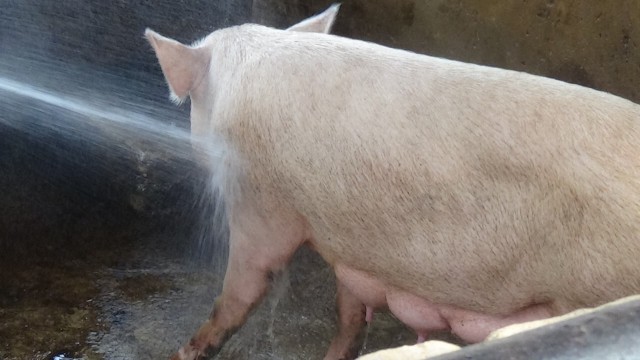
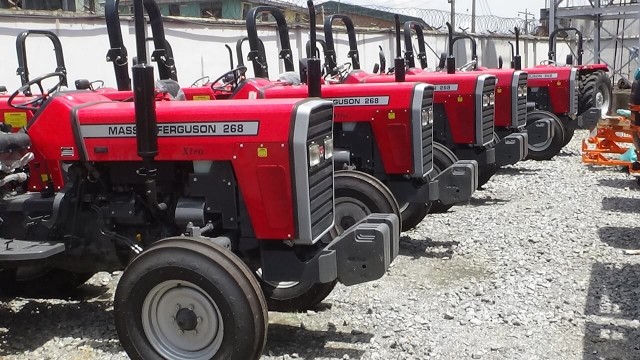





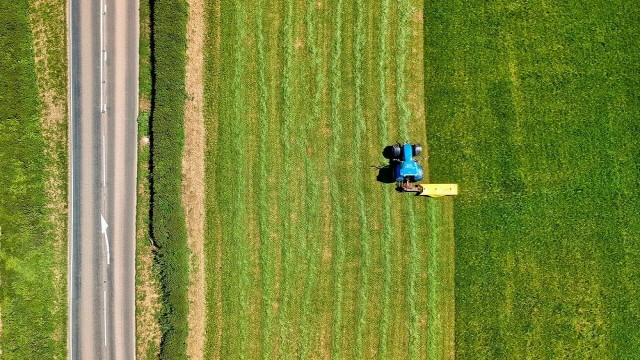
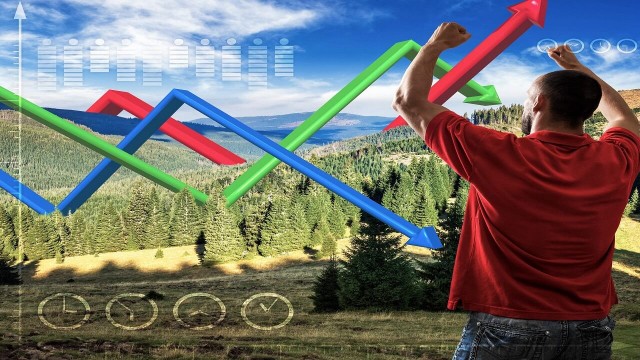
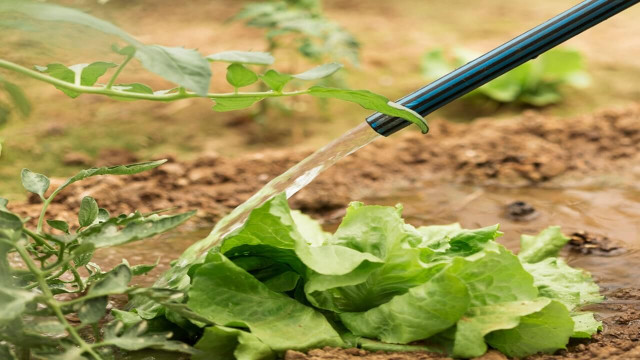


Share This Article: